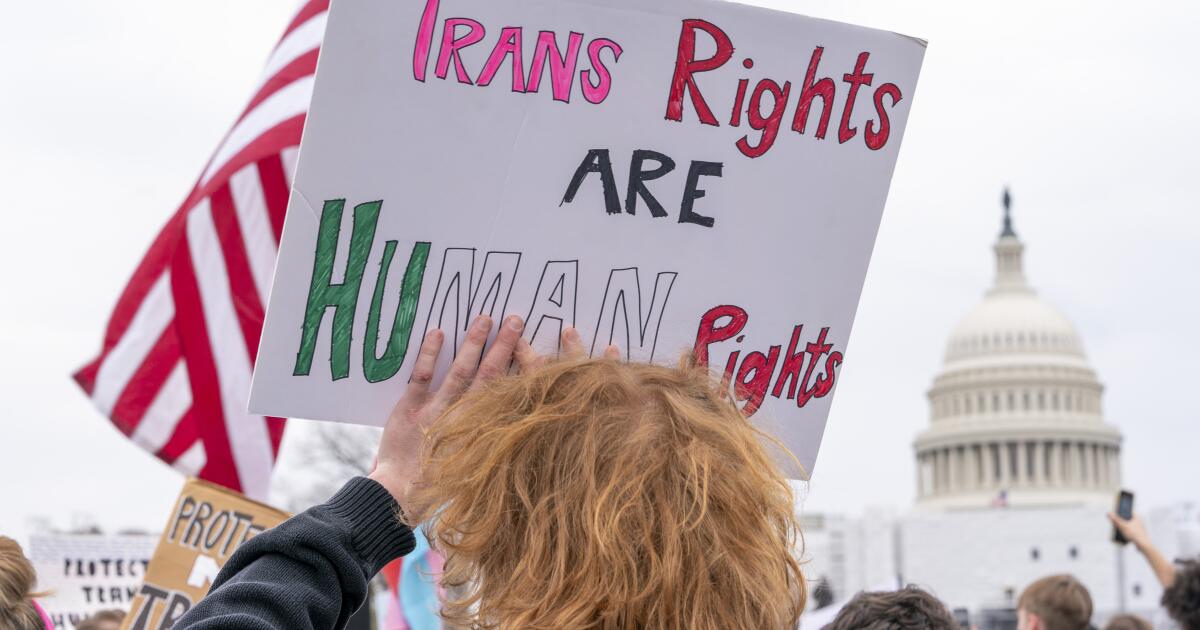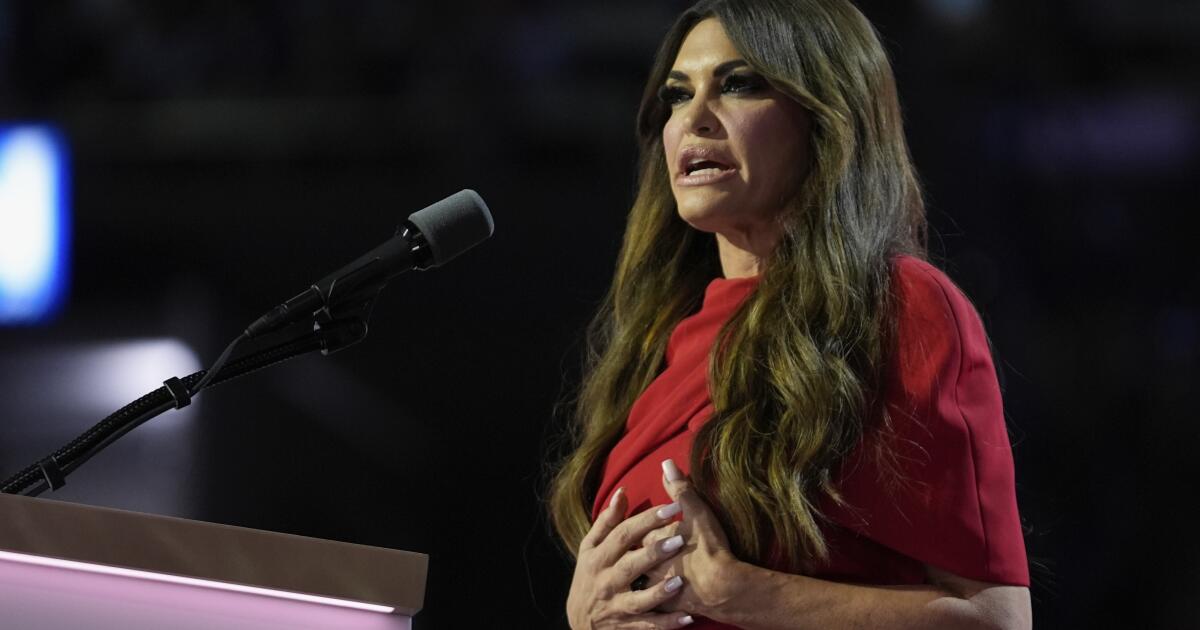
WASHINGTON — The Supreme Court’s conservatives said Wednesday they are inclined to uphold state laws in half the nation that prohibit the use of hormone treatments for transgender teens.
Led by Chief Justice John G. Roberts Jr., they spoke of an evolving medical debate over the use of puberty blockers and sex hormones for adolescents who suffer from gender dysphoria.
Britain recently joined Sweden and Finland in sharply limiting these treatments for adolescents, they said. Roberts said the justices should be wary deciding disputes among medical experts.
“Doesn’t that make a stronger case of us to leave those determinations to the legislative bodies rather than try to determine them for ourselves?” Roberts asked Solicitor Gen. Elizabeth Prelogar as she opened her argument.
“My understanding is that the Constitution leaves that question to
the people’s representatives rather than to nine people, none of whom is a doctor.”
Justice Brett M. Kavanaugh agreed.
“It just seems to me the Constitution doesn’t take sides on how to resolve this,” he said.
“There is obviously an evolving debate” about the risks and benefits of these medical treatments, he said. “England’s pulling back and Sweden’s pulling back. It strikes me as a pretty heavy yellow light, if not red light, for this court to come in, the nine of us, and to constitutionalize the whole area when the rest of the world is … pumping the brakes on this kind of treatment.”
Justices Clarence Thomas, Samuel A. Alito Jr. and Amy Coney Barrett appeared to agree.
Alito chided the Biden administration’s solicitor general for telling the court there was an “overwhelming” medical consensus in favor of prescribing hormones for adolescents with gender dysphoria.
In response, Prelogar said Britain did not adopt a total ban on such treatments, even if they are now quite limited.
Meanwhile, Justice Neil M. Gorsuch, who wrote the court’s 2020 opinion that extended federal antidiscrimination protection to transgender employees, asked no questions during the three-hour argument.
However, the court’s three liberals argued strongly that the conservative state laws discriminate against transgender teens and should be struck down.
“Usually parents get to decide” what is the best medical treatment for their child, Justice Sonia Sotomayor said. “But Tennessee has decided to override them.”
Since 2021, Tennessee and 23 other states have adopted laws that forbid prescribing hormones and puberty blockers for those younger than 18 for the purpose of gender transition.
In defense of those laws, Tennessee Atty. Gen. Jonathan Skrmetti argued that the practice of medicine is a matter for the state, and lawmakers there said the hormone treatments are risky and unproven for adolescents.
The Biden administration urged the court to hear the Tennessee case and to rule the law discriminatory and unconstitutional.
Prelogar and ACLU attorney Chase Strangio urged the court to rule that because the laws discriminate based on sex and gender, they are suspect and should be struck down.
At a minimum, they said, the court should send the Tennessee case back to a lower court judge to decide whether the state can justify what Prelogar and Strangio called gender-based discrimination.
Strangio said the Tennessee law “has taken away the only treatment that relieved years of suffering for each of the adolescent plaintiffs.”
A ruling in favor of Tennessee would be a victory for the conservative states, but it would not directly affect California or other Democratic states, which put no similar limits on medical treatments for transgender youths.
However, President-elect Donald Trump campaigned against what he called “left-wing gender insanity.” Upon taking office, he said, he would instruct federal agencies to “cease all programs that promote the concept of sex and gender transition at any age.”
It’s also possible that after taking office in January, Trump’s Justice Department appointees could notify the court they would like to drop the government’s appeal in the Tennessee case.
The justices could choose to dismiss the case without ruling, or they could proceed by focusing only on the appeal lodged by the ACLU.
Kavanaugh and Barrett asked about competitive school sports and whether officials may limit participation by transgender girls. But they agreed that question will not be resolved in this case.



